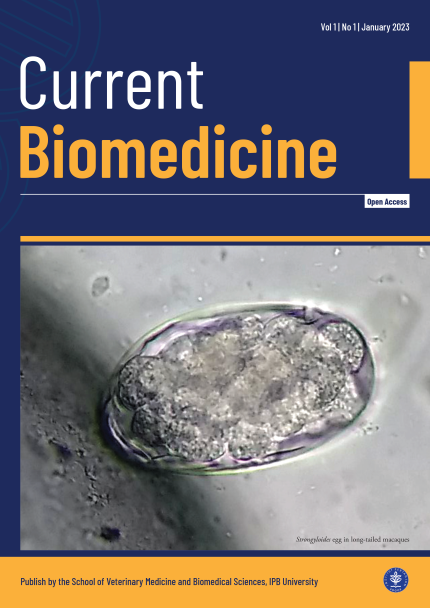Incidence of gastrointestinal nematodosis in long-tailed macaque (Macaca fascicularis) at the Primate Research Center of LPPM IPB
Abstract
Background: The long-tailed macaque (Macaca fascicularis) is often used as a model animal in biomedical research. Nematodosis is common among non-human primates. Gastrointestinal nematodosis may affect study results or be a potential source of transmission to humans (zoonosis). Objective: The study aimed to identify the type, calculate the degree of infection, and the prevalence of gastrointestinal nematode worms in long-tailed macaques in captivity at the Primate Research Center, Institute for Research and Community Service (PSSP LPPM) IPB University. Methods: Faeces samples from 24 long-tailed macaques were examined using the McMaster and Kato-Katz simple flotation methods. Results: Nine (37.5%) of the 24 samples were infected by trichurid (20.8%), ascarid (12.5%), and strongylid (4.2%), each with an average degree of infection 833.3 ± 923.8, 32 ± 27.7, and 12 ± 17 eggs per gram of faeces (EPG), respectively. The prevalence of nematodosis in long-tailed macaques based on age group and sex was in infants 50%, children 50%, adolescents 16.7%, adults 33.3%, males 33.3%, and females 41.7%. Conclusion: The incidence and degree of gastrointestinal nematodosis infection in long-tailed macaques showed a moderate to low level. These results can be considered in maintenance management, biomedical research, and mitigation of potential transmission risk to humans.













